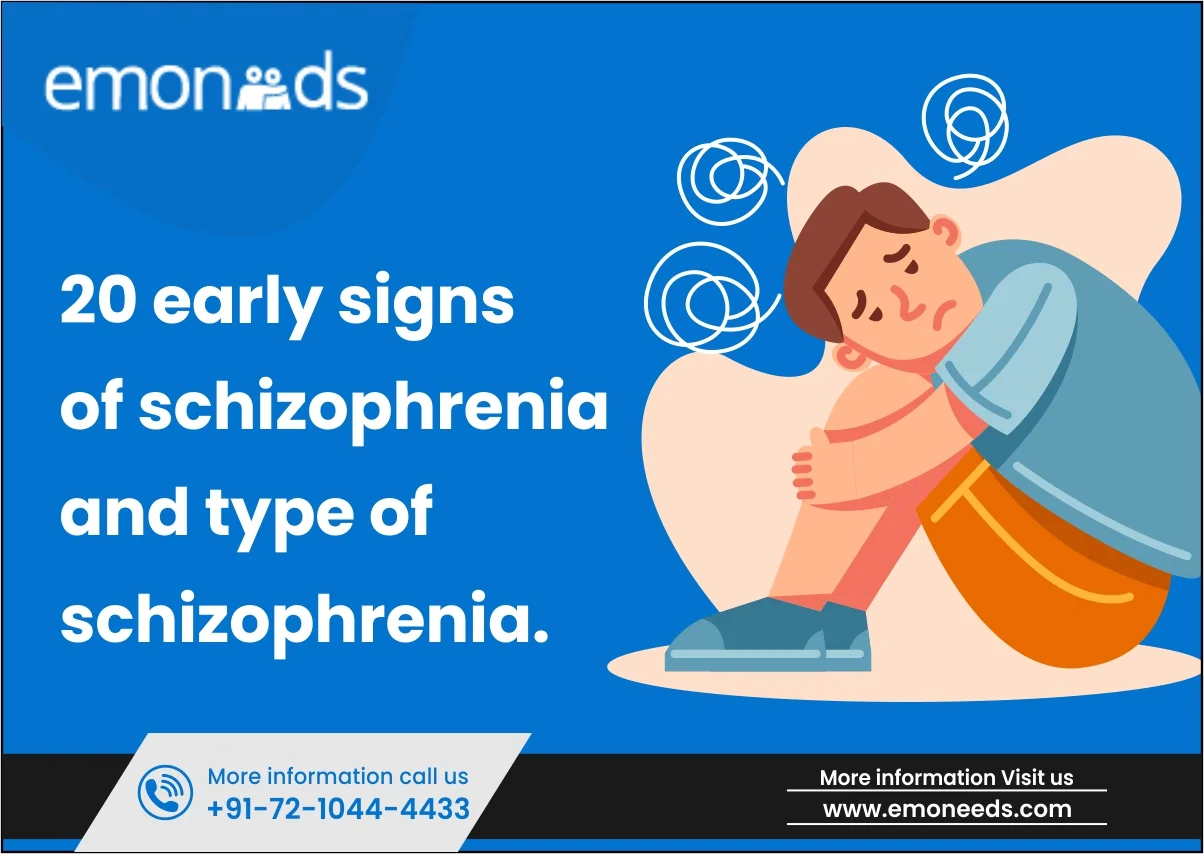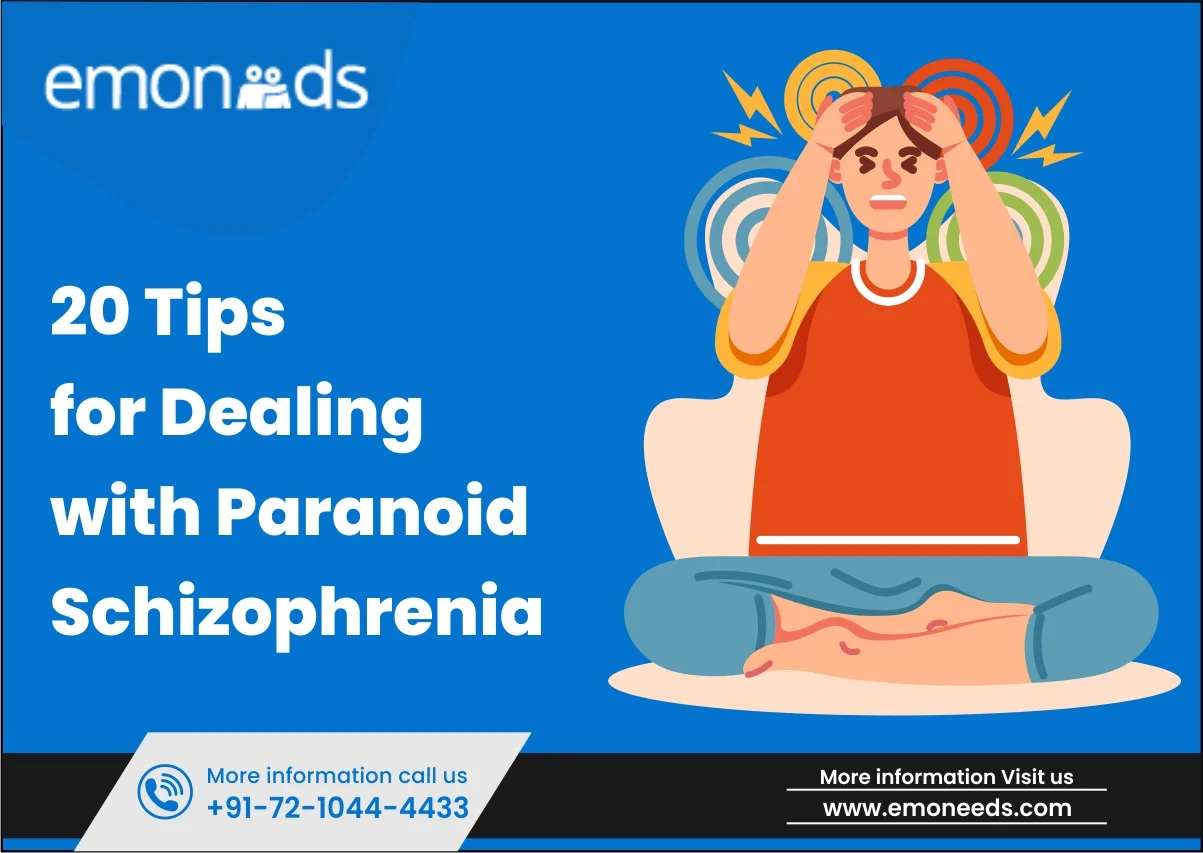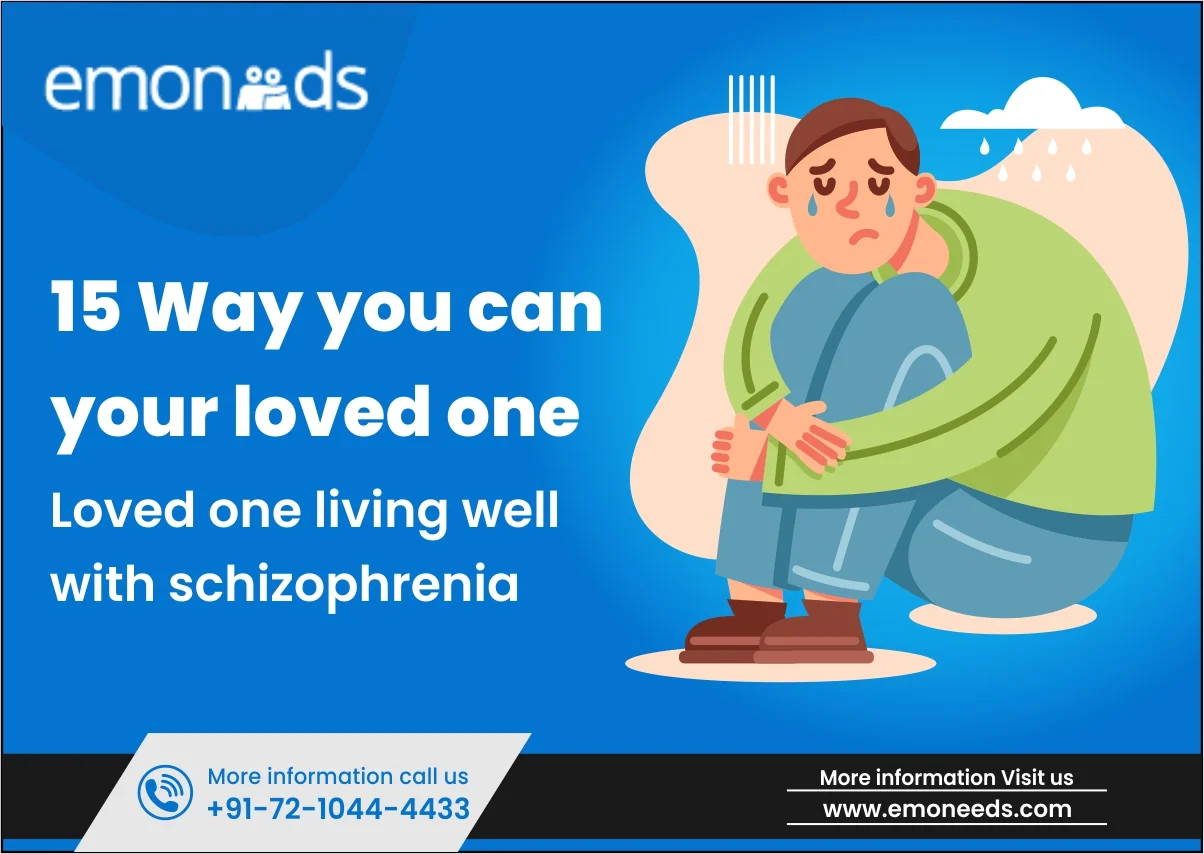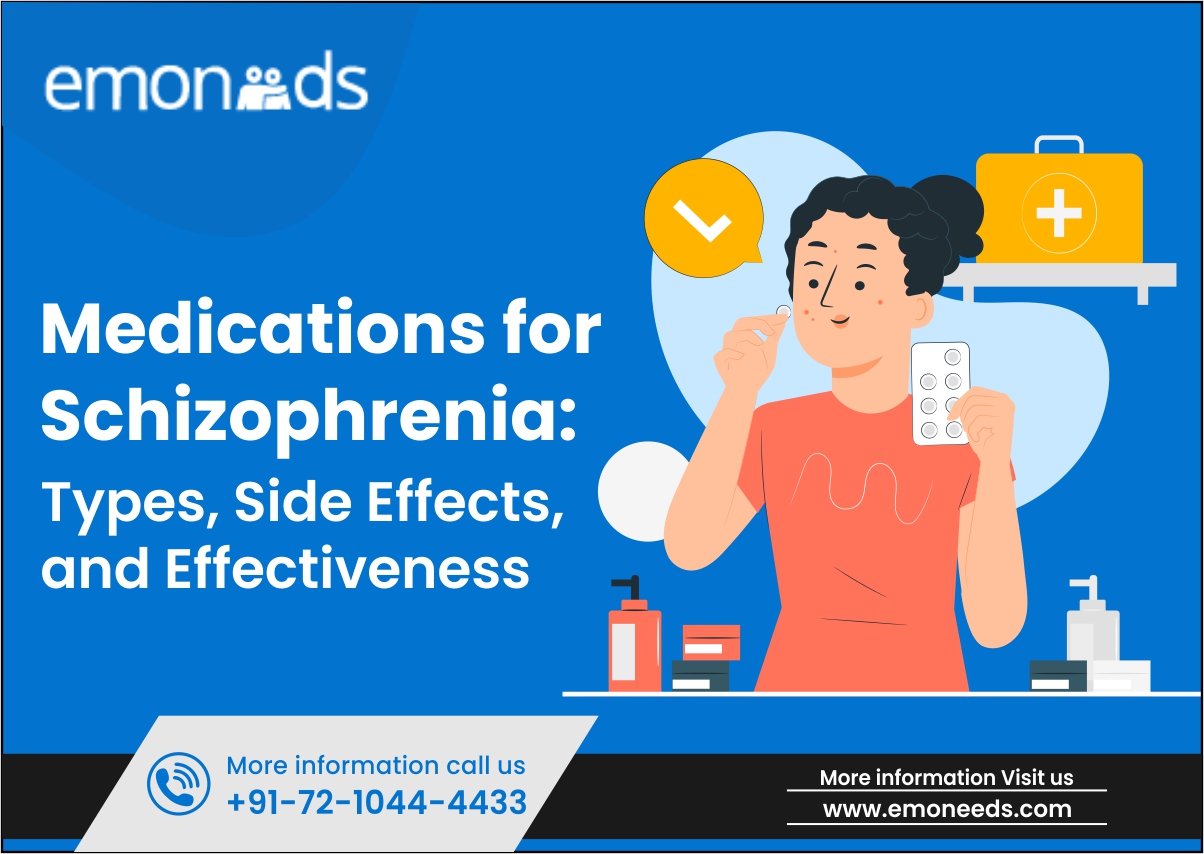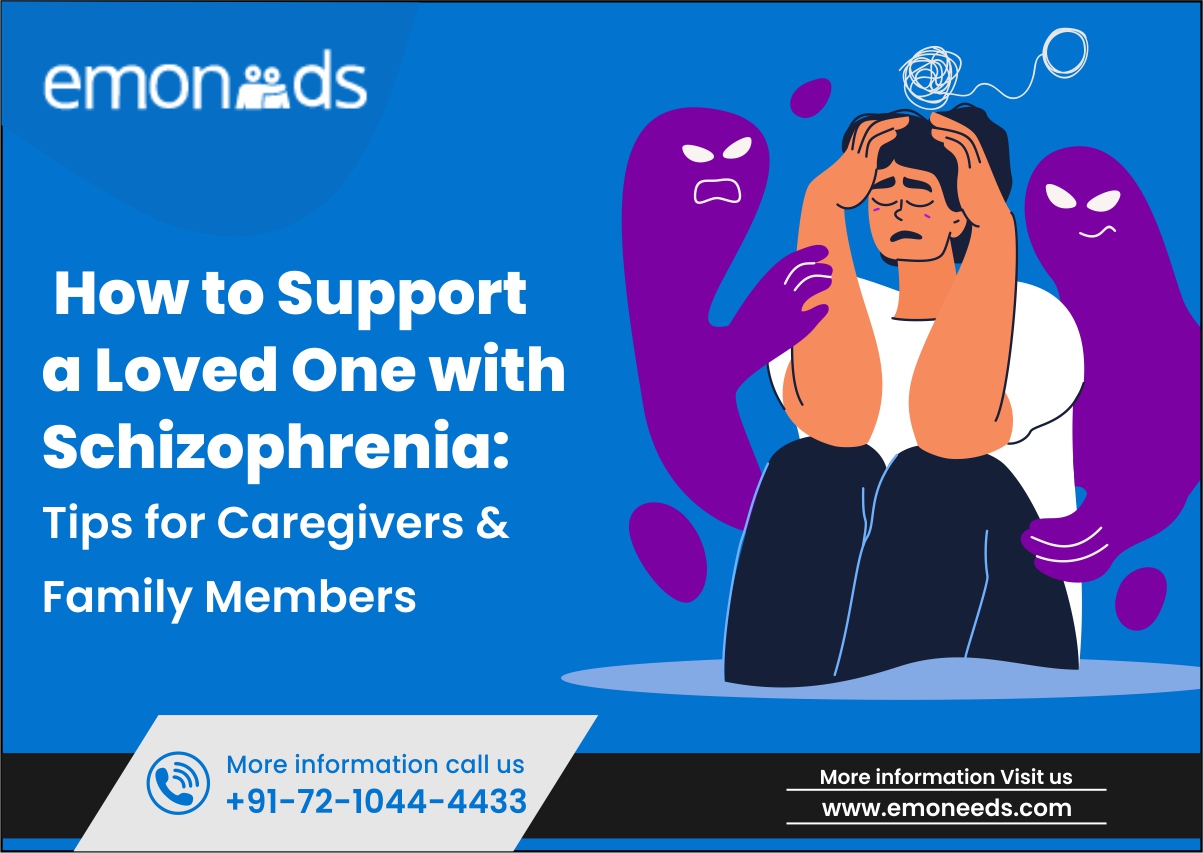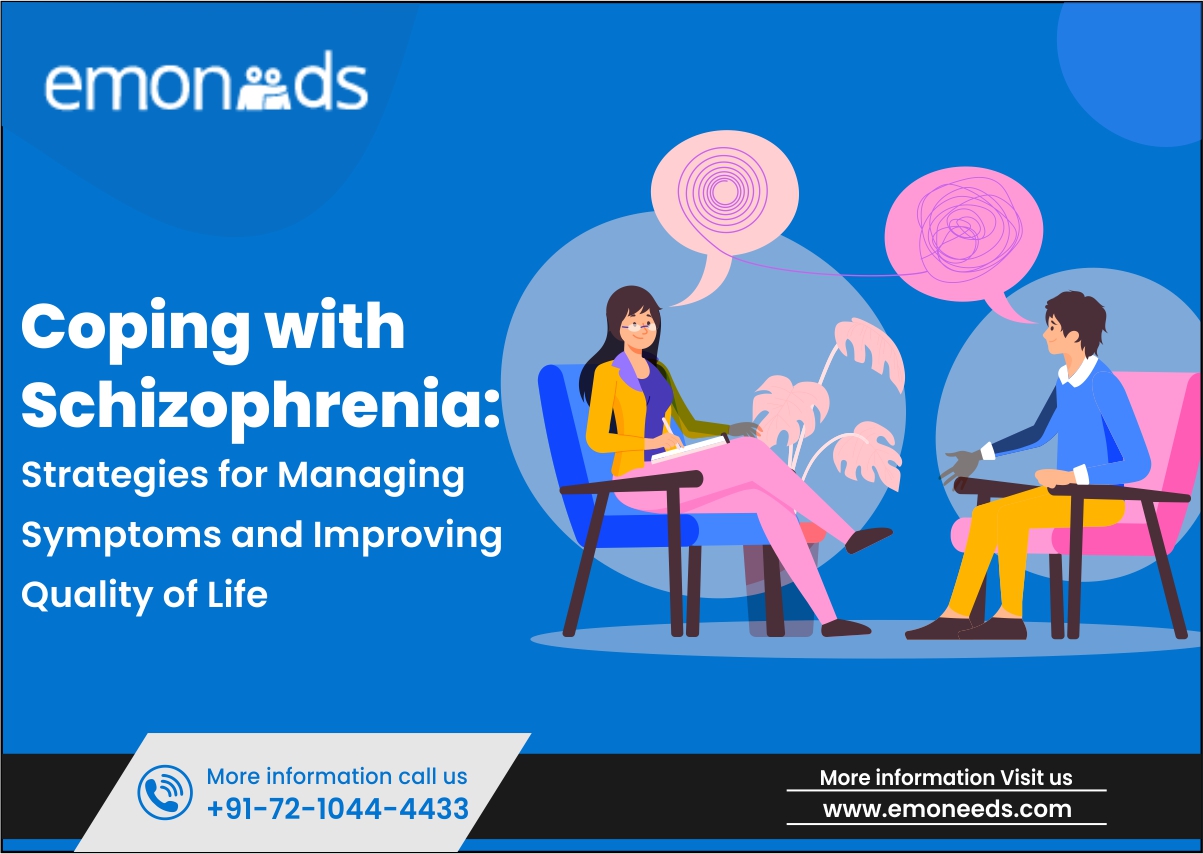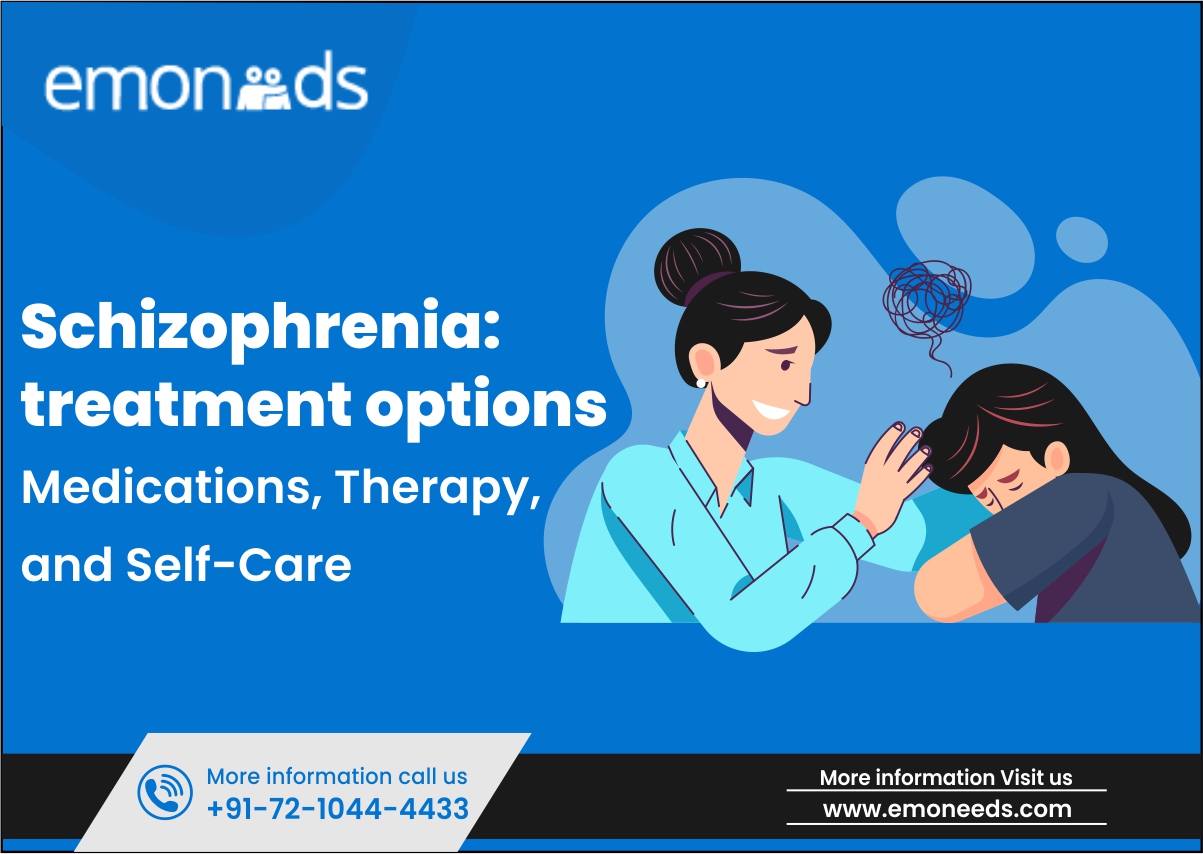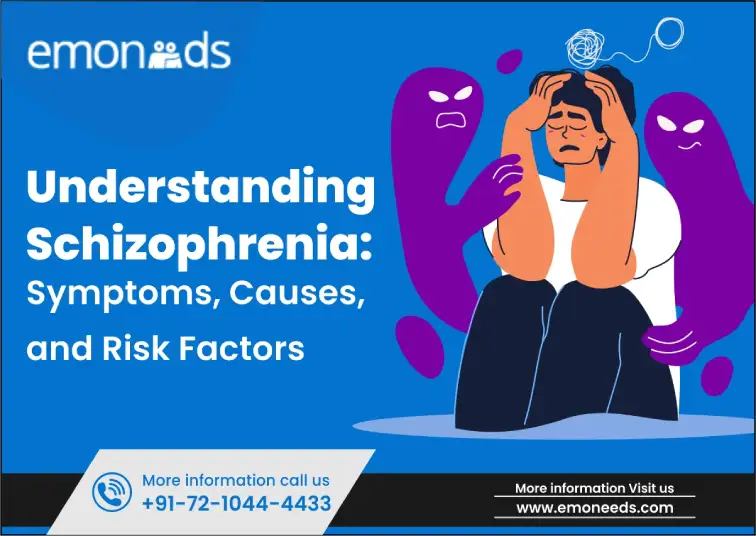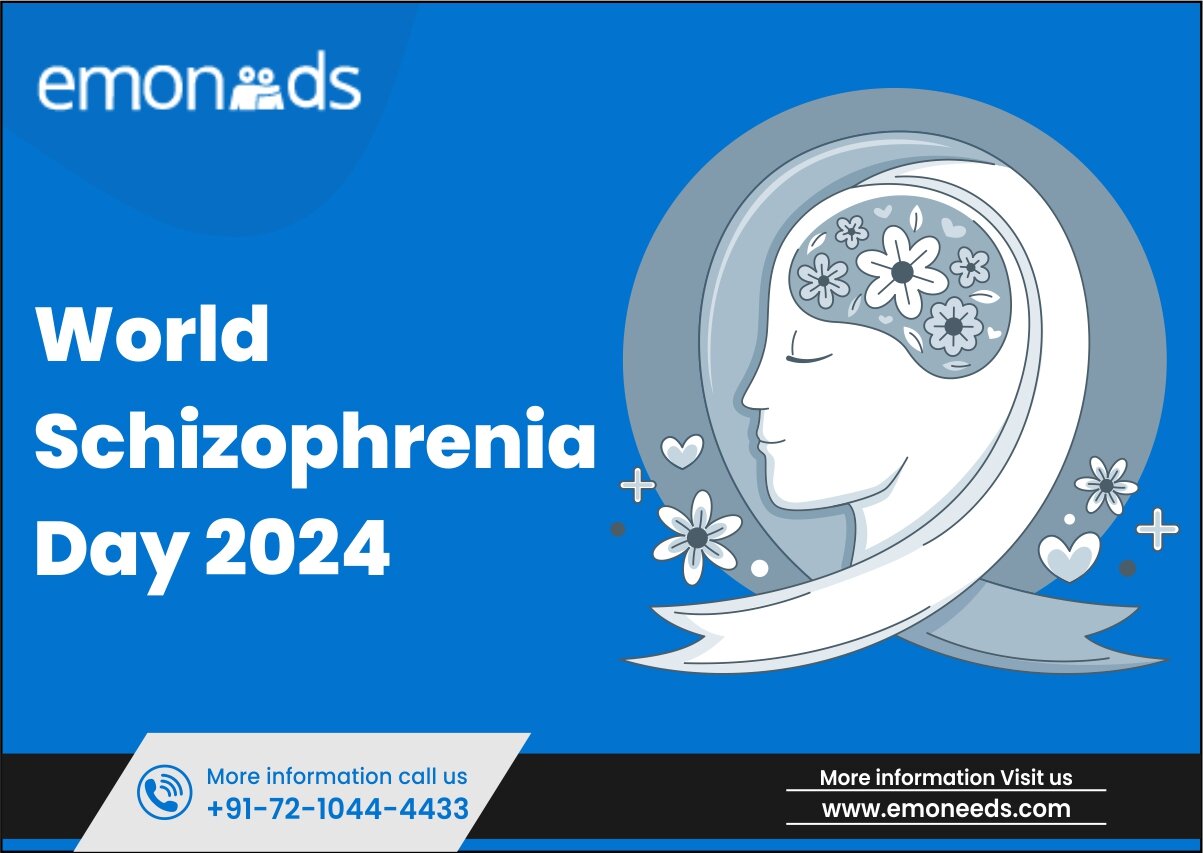
On May 24th, 2024, the world observes World Schizophrenia Day, an annual event dedicated to raising awareness about schizophrenia and reducing the stigma surrounding this complex mental health condition. As we commemorate this significant day, it’s essential to understand the impact of schizophrenia on individuals and communities worldwide, along with the efforts to provide support and resources for those affected.
Emoneeds, a leading provider of online mental health consultation services, is committed to offering guidance and assistance to individuals navigating the challenges of schizophrenia.
What is Schizophrenia?
Schizophrenia is a mental disorder characterized by disruptions in thoughts, emotions, and perceptions. Individuals with schizophrenia may experience a range of symptoms, including:
- Hallucinations: Hearing, seeing, or feeling things that are not real.
- Delusions: Holding false beliefs, often with paranoia or grandiosity.
- Disorganized thinking: Difficulty organizing thoughts or making logical connections.
- Disorganized or abnormal motor behavior: Unusual movements or lack of purposeful actions.
- Negative symptoms: Reduced emotional expression, social withdrawal, and decreased motivation.
These symptoms can vary in severity and may come and go over time, often causing significant distress and impairing daily functioning.
Causes and Risk Factors
The exact cause of schizophrenia is not fully understood, but it is believed to result from a combination of genetic, environmental, and neurobiological factors. Some potential causes and risk factors include:
- Genetics: Having a family history of schizophrenia increases the risk.
- Brain chemistry and structure: Imbalances in neurotransmitters, such as dopamine, and abnormalities in brain structure may contribute.
- Prenatal factors: Exposure to toxins or infections during pregnancy, as well as complications during birth, may increase the risk.
- Stressful life events: Traumatic experiences or chronic stress may trigger or exacerbate symptoms in vulnerable individuals.
Impact on Individuals and Society
Schizophrenia can have profound effects on both individuals and society as a whole. For affected individuals, it can lead to:
- Social isolation: Difficulty maintaining relationships or participating in social activities.
- Occupational challenges: Trouble holding down a job or pursuing educational opportunities.
- Physical health issues: Increased risk of comorbid conditions like cardiovascular disease and substance abuse.
- Reduced life expectancy: Individuals with schizophrenia often have shorter lifespans compared to the general population.
On a societal level, schizophrenia contributes to:
- Economic burden: Healthcare costs, lost productivity, and disability payments associated with schizophrenia impose a significant financial strain.
- Stigma and discrimination: Misunderstandings about the disorder can lead to social stigma, discrimination, and barriers to accessing treatment and support services.
- Public safety concerns: In some cases, untreated schizophrenia can lead to behaviors that pose risks to oneself or others, highlighting the importance of early intervention and support.
History and Significance of World Schizophrenia Day
World Schizophrenia Awareness Day 2024 originated to raise awareness about schizophrenia. It likely evolved from grassroots efforts by advocacy groups, mental health organizations, and individuals affected by the disorder. Over time, it has gained recognition globally, with various activities and events organized to educate the public and reduce the stigma surrounding schizophrenia.
The primary aim of Schizophrenia Day is to increase awareness and understanding of the disorder among the general public, healthcare professionals, and policymakers. Through educational initiatives, outreach programs, and media campaigns, the day seeks to dispel myths, challenge stereotypes, and encourage empathy and support for individuals living with schizophrenia and their families.
Previous Schizophrenia Days have seen significant achievements in destigmatizing the disorder, promoting early intervention and treatment, and fostering community support networks. These efforts have led to increased recognition of the importance of mental health services, improved access to care, and greater acceptance and inclusion of individuals with schizophrenia in society.
World Schizophrenia Day 2024 Theme and Objectives
The World Schizophrenia Day 2024 theme is “Celebrating the Power of Community Kindness.” The campaign aims to foster empathy and support for individuals with schizophrenia, promote early intervention and treatment, and raise awareness among the public, healthcare professionals, and policymakers. Target audiences include the general public, healthcare professionals, advocacy groups, and affected individuals and families. Stakeholders involved encompass mental health organizations, community leaders, and governmental agencies responsible for mental health services.
Celebrating World Schizophrenia Day 2024 with Diverse Activities
For world Schizophrenia Day 2024, a range of activities can engage the community, foster understanding, and offer support:
Educational Seminars and Workshops
Organize seminars and workshops led by mental health professionals to educate the public about schizophrenia. Topics may include symptoms, treatment options, coping strategies, and debunking myths. Interactive sessions can encourage dialogue and address questions or concerns.
Public Awareness Campaigns
Launch public awareness campaigns through posters, flyers, and online platforms to reach a wider audience. Use clear, concise messaging to raise awareness about the realities of living with schizophrenia, promote empathy, and challenge stigma. Collaborate with local media outlets for broader coverage.
Support Group Meetings and Counseling Sessions
Facilitate support group meetings and counseling sessions for individuals living with schizophrenia and their families. Provide a safe space for sharing experiences, offering mutual support, and accessing resources. Trained facilitators can guide discussions and provide emotional support.
Artistic Expressions and Creative Initiatives
Encourage artistic expressions such as painting, poetry, music, or storytelling to express emotions and experiences related to schizophrenia. Host art exhibitions, open mic nights, or creative workshops to showcase talents and promote dialogue. Artistic initiatives can inspire empathy and offer alternative ways of understanding the disorder.
Utilizing traditional media platforms (TV, radio, newspapers)
Spreading awareness about schizophrenia requires utilizing both traditional and digital media platforms effectively. Traditional media platforms like television, radio, and newspapers can reach a broad audience. Organizing interviews with mental health professionals or individuals with lived experience can provide informative content for TV and radio segments. Additionally, publishing articles in newspapers can raise awareness and educate the public about the disorder in a more in-depth manner.
Social Media Engagement and Online Outreach
Harness the power of social media in different ways to amplify the message of Schizophrenia Day. Engaging social media influencers and online communities is crucial in reaching younger audiences and those who are active on digital platforms. Collaborating with influencers who have a genuine interest in mental health can help spread accurate information and encourage discussions about schizophrenia. Creating shareable content, such as infographics or personal stories, can increase engagement and reach a wider audience online.
Importance of Early Detection and Intervention
Early detection of schizophrenia is crucial for effective management and improved outcomes. Recognizing warning signs and symptoms enables individuals, families, and healthcare professionals to intervene promptly.
Timely diagnosis and treatment can significantly reduce the severity of symptoms and improve the quality of life for individuals with schizophrenia. Encouraging individuals to seek help from mental health professionals and providing access to culturally sensitive and affordable services are essential in promoting early intervention.
Increasing public awareness and understanding of mental health issues, including schizophrenia, reduces stigma and encourages people to seek help without fear or shame. Educating communities about the signs of mental illness and available support resources empowers individuals to recognize symptoms early and seek appropriate care.
Addressing Stigma Surrounding Schizophrenia
Schizophrenia is often misunderstood, leading to harmful stereotypes and myths. It’s crucial to debunk these misconceptions:
Myth: Schizophrenia means having multiple personalities
Fact: Schizophrenia is a mental disorder characterized by distorted thoughts, perceptions, and emotions, but it does not involve having multiple personalities.
Myth: People with schizophrenia are violent and dangerous
Fact: Most individuals with schizophrenia are not violent. They are more likely to be victims of violence than perpetrators.
Myth: People with schizophrenia are weak or lazy
Fact: Schizophrenia is a medical condition, not a character flaw. It requires understanding and support, not judgment.
Myth: Schizophrenia is caused by bad parenting or personal weakness
Fact: Schizophrenia is primarily caused by genetic and environmental factors, not by personal failings or upbringing.
Myth: Individuals with schizophrenia cannot contribute to society
Fact: With appropriate treatment and support, many people with schizophrenia can lead productive lives and contribute to their communities.
Myth: Schizophrenia is untreatable
Fact: While schizophrenia can be challenging to manage, treatments such as medication, therapy, and support services can help individuals lead fulfilling lives.
Treatment, including therapy and medication, can significantly improve symptoms and quality of life. Additionally, people with schizophrenia can lead fulfilling lives, pursuing careers and relationships. By educating ourselves and others, we can combat stigma and promote empathy and understanding for those living with schizophrenia. Let’s replace fear and ignorance with knowledge and compassion.
Collaborations and Partnerships
Collaborations and Partnerships play a vital role in addressing the challenges of schizophrenia. Government agencies and non-profit organizations provide essential resources and support for individuals affected by the condition, including access to treatment and services. Collaboration with healthcare professionals and mental health advocates ensures that individuals receive comprehensive care and support tailored to their needs. Engaging local communities and grassroots organizations fosters a sense of belonging and understanding, creating supportive environments for those living with schizophrenia.
Additionally, platforms like Emoneeds play a significant role in enhancing support for individuals with mental health disorders. Emoneeds, an online platform connecting individuals with mental health professionals, provides a valuable resource for those seeking assistance with schizophrenia and other mental health conditions.
Through Emoneeds, individuals can access a network of qualified mental health professionals who specialize in treating schizophrenia. This platform offers a convenient and accessible way for individuals to connect with professionals, whether they are seeking therapy, medication management, or support services.
Emoneeds also provides educational resources and information about schizophrenia, helping to increase understanding and awareness of the condition among the general public. By leveraging technology and innovation, Emoneeds contributes to the broader efforts of Schizophrenia Day by ensuring that individuals have access to the support and resources they need to manage their condition effectively.
Conclusion
World Schizophrenia Day 2024 holds immense importance in raising awareness and fostering understanding about this often misunderstood condition. It serves as a reminder of the need for continued advocacy and support for individuals living with schizophrenia, urging us all to stand together in solidarity. Let us actively work to spread awareness and understanding throughout our communities, challenging stigma and promoting acceptance.
Let us connect with platforms like Emoneeds, which provide valuable resources and support for individuals seeking assistance with schizophrenia and other mental health conditions. Together, we can make a difference in the lives of those affected by schizophrenia.




